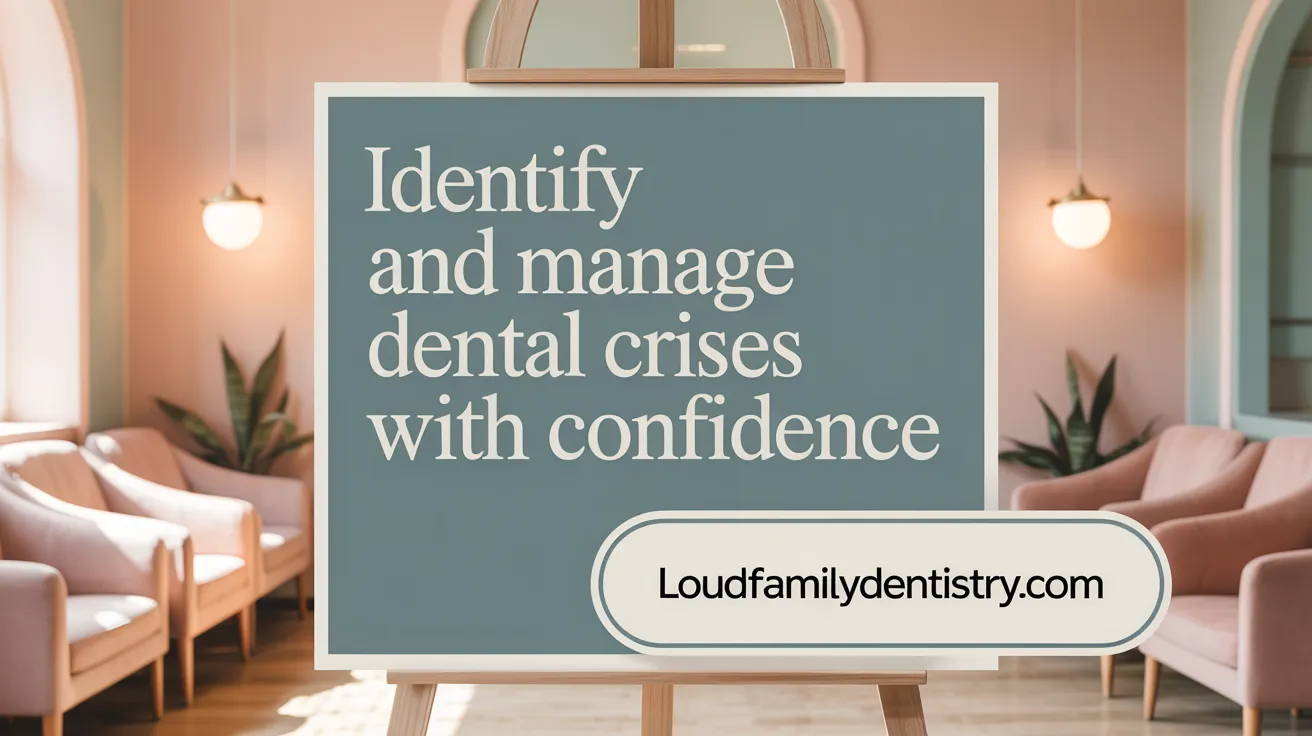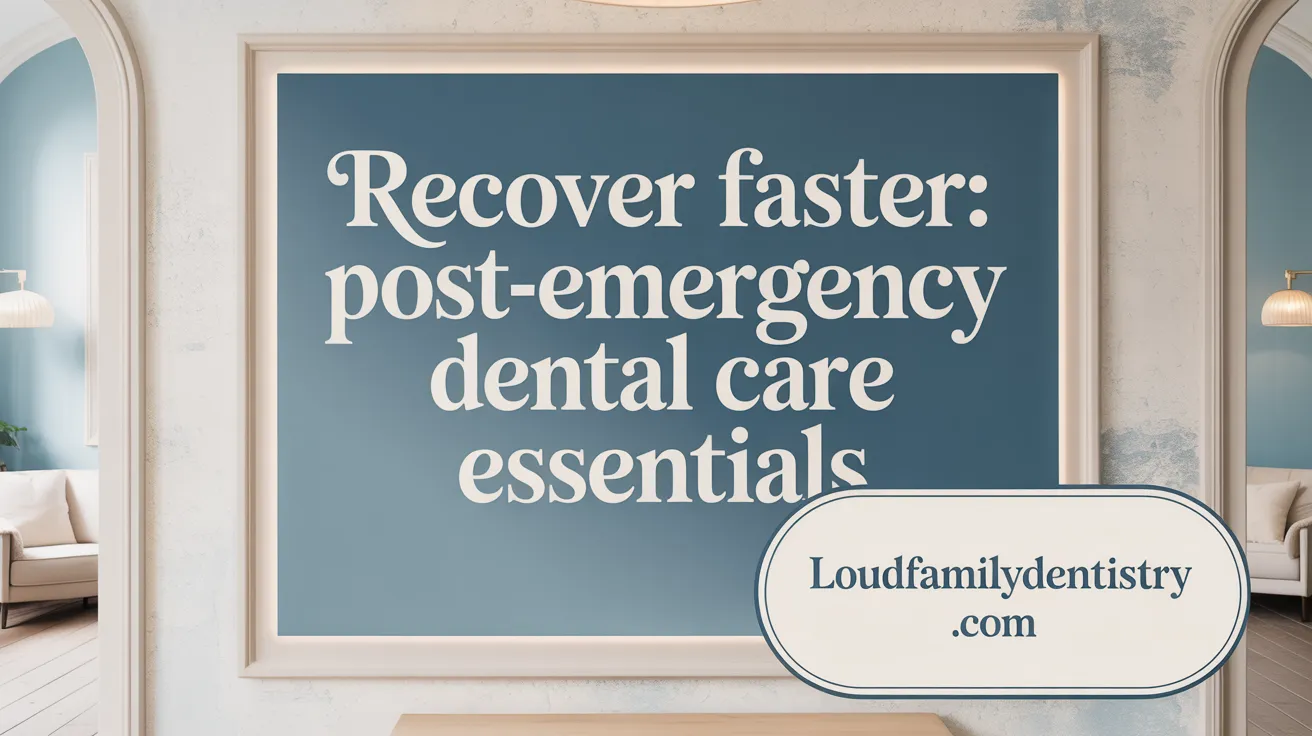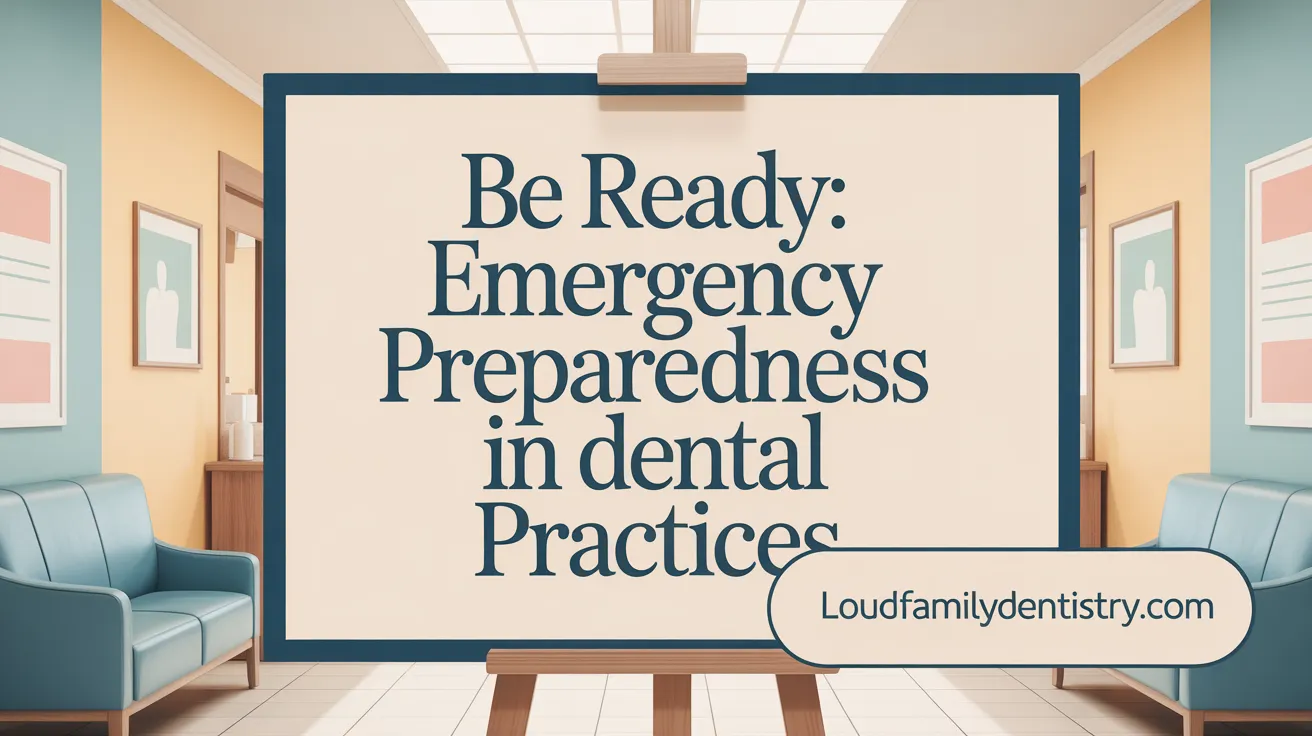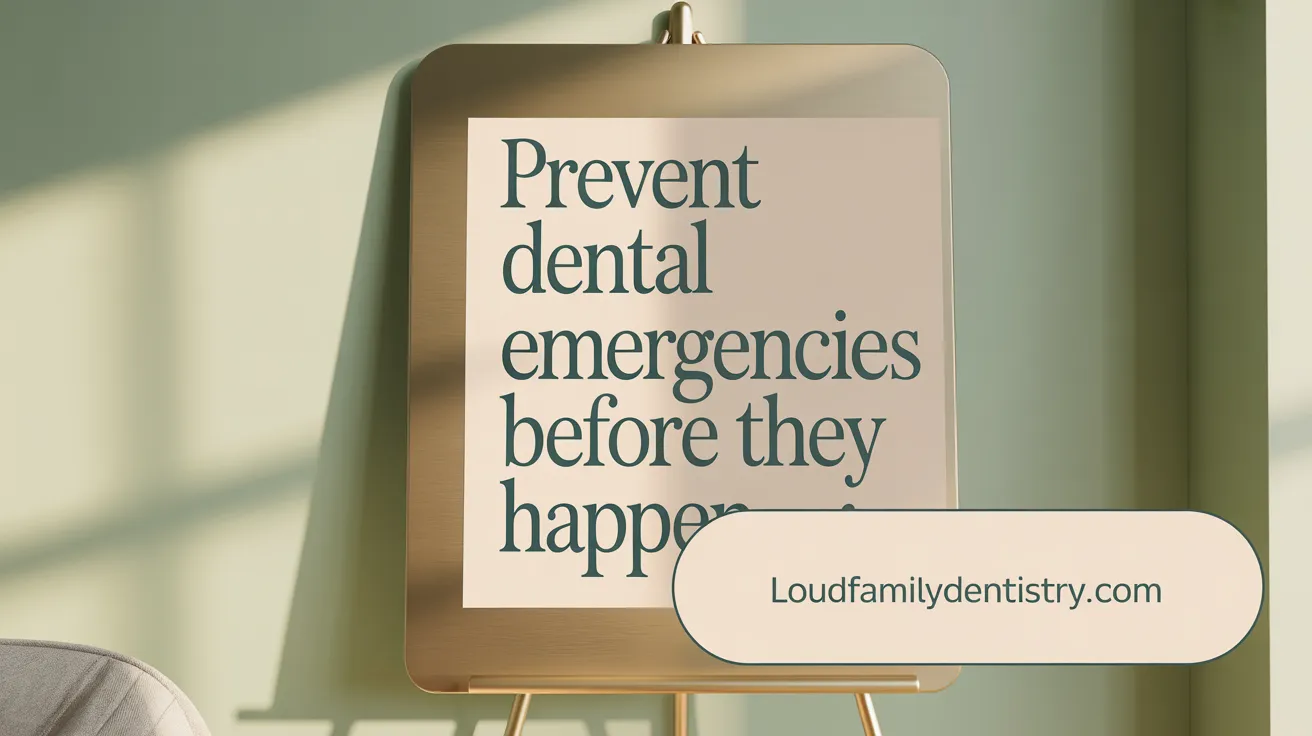Understanding the Importance of Immediate and Proper Emergency Dental Care
What Is a Dental Emergency?
A dental emergency involves any situation where dental health is at immediate risk, and urgent care is needed. This includes severe toothaches, unrelenting bleeding, knocked-out teeth, facial trauma, cracked or chipped teeth, and dental infections that cause swelling or pain.
Why Swift Response Matters
Quick and proper action after dental trauma greatly improves outcomes. For example, a knocked-out permanent tooth should ideally be reinserted within one hour for the best chance of saving it. If reinsertion isn’t possible, storing the tooth in milk or a specialized preservative helps until professional care is accessible.
Impact on Overall Dental Health
Delaying treatment for dental emergencies can lead to worsened pain, infection, and even permanent tooth loss. Prompt emergency care can reduce complications, prevent further damage, and protect your oral health. Following an emergency, ongoing care and monitoring are important to ensure complete recovery and maintain overall dental well-being.
Recognizing and Handling Common Dental Emergencies Effectively

What Are Common Dental Emergencies?
Dental emergencies often include knocked-out teeth, cracked teeth, injuries to soft tissues like lips or tongue, and severe tooth pain. These urgent issues require quick and careful response to prevent long-term damage and alleviate discomfort.
How Should You Handle a Knocked-Out Tooth?
Retrieving the tooth by the crown and gently rinsing it is critical. If possible, reinsert the tooth into its socket within an hour for the best chance of saving it. If reinsertion isn't feasible, keep the tooth moist by storing it in milk or a specialized cell growth medium until you can see a dentist. For detailed guidance, see first aid for knocked-out permanent teeth.
What To Do With Cracked Teeth or Soft Tissue Injuries?
Rinse the mouth with warm water and apply a cold compress to reduce swelling from cracked teeth. For bites or cuts on the lips or tongue, clean gently and use cold compresses to control swelling and bleeding. Learn more about Handling a cracked tooth and Managing biting injuries to tongue or lip.
How Should Severe Tooth Pain Be Managed Temporarily?
Rinse your mouth with warm water and use floss to remove any food particles trapped between teeth. Avoid placing aspirin or any medication directly on the gums or teeth, as this may cause irritation. Safe pain relief strategies are covered under Relieving toothaches safely.
Why Avoid Harmful Self-Treatments?
Refrain from using sharp objects to remove debris and avoid chewing on broken or painful teeth, which can worsen the injury. Improper handling can cause further damage or infection. More insights on Managing broken dental restorations and Using temporary dental cement are available.
When Is Professional Dental Care Necessary?
Immediate consultation with a dental professional is essential for all these emergencies to manage pain, prevent infection, and provide appropriate treatment. Emergency Dental Care in Shreveport offer same-day appointments and specialized care for such urgent situations, ensuring quick recovery and preservation of oral health. For comprehensive care, consider services offered by Kyle Parkway Dentistry emergency dental services and Emergency Dentistry in Shreveport, LA.
Optimized Post-Emergency Dental Recovery: Key Strategies

How can pain be managed effectively after emergency dental care?
Managing pain is crucial for comfortable recovery. Patients are advised to use medications as prescribed by their dentist. Additionally, applying cold or warm compresses can help alleviate swelling and discomfort. Relaxation techniques such as deep breathing or meditation may also reduce pain perception and support healing. For more detailed strategies, see Pain management strategies after dental emergencies.
What are the best oral hygiene practices following dental emergencies?
Oral hygiene should be maintained gently to avoid aggravating the injury. Using a soft-bristled toothbrush and mild mouthwash helps keep the mouth clean without causing further irritation. It is important to avoid aggressive brushing and to follow any specific instructions provided by the dental care professional. Refer to Maintaining oral hygiene after dental emergencies for comprehensive guidance.
Which dietary choices support recovery after dental emergencies?
Soft, nutrient-rich foods that are easy to chew are recommended to prevent stress on the affected area. Patients should avoid extremely hot or cold items to reduce sensitivity and potential pain. Staying hydrated is also important during recovery to aid tissue repair and overall health. For detailed recommendations, visit Diet recommendations for post-emergency dental recovery.
Why are follow-up dental appointments important after an emergency?
Regular follow-up visits allow the dentist to monitor healing progress and quickly identify any complications such as infection or improper tooth healing. Early detection facilitates timely intervention, improving the chances of a successful recovery. Learn more about the Importance of follow-up dental appointments.
How can stress be reduced to improve healing during recovery?
Practices like meditation and deep breathing exercises can help lower stress levels, which positively influences the body's healing capacity. Relaxation methods combined with proper pain management enhance patient comfort and recovery outcomes. Explore Stress reduction techniques for dental healing for further information.
Preparedness in Dental Offices for Medical and Dental Emergencies

How Do Dental Offices Prepare for Medical and Dental Emergencies?
Dental offices must have comprehensive Dental emergency plans to effectively manage medical and dental emergencies. Preparation involves creating protocols that cover prevention of medical emergencies in dentistry, quick recognition, and immediate management of urgent situations.
What Role Does Staff Training Play in Emergency Readiness?
Regular staff training is crucial. This often includes Mock emergency drills for dental teams simulating emergencies to ensure that everyone knows their role and can respond rapidly and calmly. Ongoing education helps keep the team updated on best practices and reinforces confidence in handling crises.
What Emergency Equipment Should Be Available in Dental Offices?
Essential emergency equipment includes automated external defibrillators (AEDs) in dental practices and emergency drugs in dental offices necessary to stabilize patients during adverse events. Many regions mandate that dental practices—especially those using sedation—equip their offices accordingly.
Are There Guidelines and Regulations Governing Dental Emergency Preparedness?
Yes, dental offices must comply with state-specific laws and professional guidelines. For example, in Illinois, dental practices that administer deep sedation are required by law to maintain a written emergency plan and have AEDs on-site as per the 2010 Illinois AED law. These regulatory frameworks ensure patient safety and standardized responses.
How Do Professional Organizations Support Dental Emergency Preparedness?
The American Dental Association (ADA) provides valuable resources including dental emergency courses by ADA, guidelines for dental emergency preparedness, and training materials to help dental offices develop and maintain effective emergency preparedness. Their support is instrumental in promoting consistent, high-quality emergency care across dental practices.
| Aspect | Importance | Details |
|---|---|---|
| Emergency Protocols | Foundation of emergency readiness | Includes prevention of medical emergencies in dentistry and immediate response plans |
| Staff Training | Enhances response efficiency | Regular mock emergency drills for dental teams and continuous learning |
| Emergency Equipment | Critical for patient stabilization | AEDs and emergency drugs required by law |
| Regulations | Ensures compliance and safety | State laws like Illinois dental emergency regulations mandate plans and equipment |
| Professional Support | Provides education and resources | ADA offers guidelines and training programs |
Accessing Emergency Dental Care in Community-Oriented Clinics
Availability of urgent dental care services in community clinics
Community dental clinics in Shreveport, Louisiana, such as Kyle Parkway Dentistry emergency dental services and Shreveport Dental Solutions Clinic, offer comprehensive emergency dental services to address urgent oral health needs promptly. These clinics are dedicated to serving local residents with accessible and immediate care for dental emergencies.
Same-day and weekend emergency appointment options
Many community-oriented dental practices provide same-day emergency appointments, ensuring patients receive timely attention. Clinics like Priority Emergency Dental Care Shreveport operate Monday through Saturday with extended hours, while Shreveport Dental Solutions also offers emergency scheduling on weekends and holidays via phone, facilitating care outside normal office hours.
Treatment capabilities for various emergencies
Emergency dental clinics handle a range of urgent issues including knocked-out teeth, chipped or cracked teeth, severe toothaches, swelling, infections, and dental trauma. They are equipped to perform procedures such as reimplanting knocked-out teeth, managing pain and swelling, dental extractions, and placing temporary restorations.
Use of advanced technologies for safe and effective care
Community clinics often utilize advanced technologies in emergency dentistry to ensure treatments are safe, effective, and comfortable. For example, Dr. Chris Mott's emergency dentistry practice emphasizes the use of modern dental technology to enhance emergency dentistry outcomes and patient experience.
Support for patients of all ages in community dental practices
These clinics emphasize comprehensive care for the entire family, including pediatric dental emergencies. Their patient-centered approach focuses on comfort, thorough treatment, and prompt relief to help patients quickly return to normal activities and maintain oral health, as provided in Emergency Dental Care in Shreveport, LA.
Preventive Measures and Patient Education to Minimize Dental Emergencies

How Can Wearing Mouthguards During Sports Prevent Dental Emergencies?
Using mouthguards during sports in Shreveport is a vital preventive practice to avoid common injuries such as chipped or knocked-out teeth. Mouthguards provide cushioning and absorb impact, especially important in community activities popular in Shreveport.
What Foods Should Be Avoided to Reduce Dental Trauma?
Avoid chewing hard items like ice or popcorn kernels, as they can cause cracked or broken teeth. These foods are common culprits in dental injuries, particularly during family recreational settings. For additional guidance, see avoiding hard foods to prevent dental injuries.
How Should Patients Handle Emergencies Before Professional Care?
Patients should know basic first aid for knocked-out permanent teeth, keep a knocked-out tooth moist, attempt reinsertion, or store it in milk. For toothaches, rinse with warm water and use floss to remove trapped food. Avoid putting aspirin directly on teeth or gums. These steps help preserve dental health until professional care. Learn more about first aid for knocked-out permanent teeth and relieving toothaches safely.
Why Are Regular Dental Visits Important in Reducing Risks?
Regular dental checkups allow early detection and management of issues that could lead to emergencies. Dentists can provide personalized advice on preventive measures, improving oral hygiene, and monitoring recovery after any procedure. See importance of follow-up dental appointments for more details.
How Can Families Engage in Dental Safety Measures?
Educating families about dental safety, including avoiding risky foods, encouraging use of mouthguards, and understanding emergency protocols, strengthens community health. Engaging children and adults fosters habits to minimize dental emergencies and supports prompt action when they occur. For comprehensive strategies, visit Kyle Parkway Dentistry emergency dental services and Emergency Dental Care in Shreveport.
Advancing Emergency Dental Care Through Awareness and Preparedness
Effective Emergency Dental Strategies
Managing a dental emergency starts with immediate and correct action. Key steps include carefully handling knocked-out teeth, using cold compresses for swelling, and maintaining gentle oral hygiene. Avoiding hard foods and managing pain with medication or compresses also supports recovery.
Seek Immediate Professional Care
Timely consultation with dental professionals is crucial. Clinics like Shreveport Dental Solutions and Priority Emergency Dental Care offer same-day appointments, ensuring urgent issues like toothaches, fractures, or trauma are quickly addressed to prevent complications.
Community Clinics as Accessible Care Hubs
Local clinics such as Kyle Parkway Dentistry and Smile Dental Center provide readily accessible emergency care, often extending hours and offering weekend availability. Their community focus ensures dental emergencies are treated promptly and comfortably.
Importance of Preparedness and Education
Dental offices are encouraged to have comprehensive emergency plans and trained staff ready to respond efficiently. Patients benefit from understanding emergency protocols and practicing stress reduction, which aids healing. Education empowers individuals to act swiftly and correctly during dental emergencies, safeguarding their oral health.
